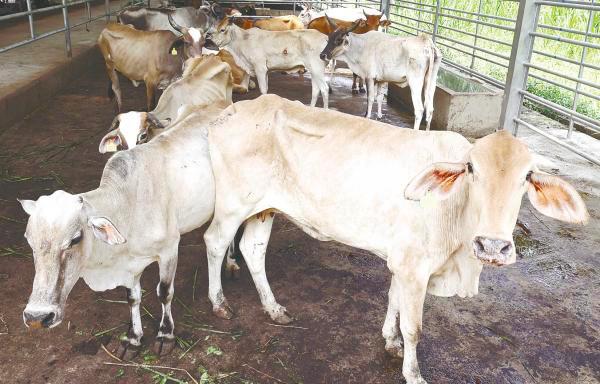PETALING JAYA: Malaysian animal husbandry practices continue to come under scrutiny for its cruel treatment of farmed livestock, with the Australia-based Voiceless Animal Cruelty Index (VACI) assigning the country an “E” grade.
VACI monitors the animal welfare in 50 countries that were chosen to be among the largest global producers of farmed animal products.
Stray Animal Feeders Malaysia president Kalaivanan Ravichandran backed the VACI rating and said Malaysia’s treatment of farmed animals remains poor.
“Malaysia has been in the spotlight for the past few years for our high levels of animal production and consumption, yet legislation to protect farmed animals remains critically inadequate.
“With poor animal welfare, factory-farmed livestock are subjected to overcrowded and inhumane conditions, such as being kept in cramped cages or enclosures.
“They are prevented from moving naturally, while young animals are separated from their mothers shortly after birth. They further undergo painful procedures such as tail docking, dehorning and castration without adequate pain relief.”
Kalaivanan said farmed animals are bred to grow unnaturally fast due to optimised feeding regimens and steroid injections, which can cause long-term health issues among consumers.
He said they are transported in overcrowded and stressful conditions, leading to injuries and death, while slaughterhouses often handle animals poorly, causing unnecessary suffering before their death.
The Animal Welfare Act 2015 prescribes fines of RM20,000 to RM100,000 and/or imprisonment of up to three years for cruelty.
The Wildlife Conservation Act 2010 imposes fines of RM5,000 to RM50,000 and/or up to one-year imprisonment for offences against protected wildlife.
Kalaivanan said despite the enactment of these laws, their enforcement remains weak and offers inadequate protection.
“The justice system’s reluctance to fully utilise the Animal Welfare Act has led to a rise in animal cruelty cases.
“Perpetrators are commonly prosecuted under the Penal Code, which does not provide stringent enough penalties to deter future crimes against farmed animals.”
Kalaivanan added that infrastructure for veterinary services is also poor, leading to frequent disease outbreaks and inadequate health management of farmed animals.
This was confirmed by Agriculture and Food Security Ministry secretary-general Datuk Lokman Hakim Ali, who said Malaysia needs at least 6,000 veterinarians to meet industry demands compared with the current 2,300 veterinarians.
He added that Malaysia needs to achieve a ratio of one veterinarian to 5,000 people who own pets or livestock, compared with one veterinarian to 14,000 people currently.
Kalaivanan said collaborating with the agricultural industry, increasing the number of veterinary doctors and reforming legislation are crucial to implementing humane farming practices.
“It is important that the public understands animal welfare issues. Our cultural perception of animals as commodities rather than living beings impedes efforts to enhance their farming conditions.”
He said in supporting animal rescue organisations through donations and volunteerism, the public can provide crucial assistance in safeguarding the welfare of all animals, including farmed ones.
“It is critical for the public and the country to prioritise the well-being of animals alongside the development of animal husbandry to foster a more humane and ethical society.”
He said this is especially so with Malaysia relying heavily on farm animal production to meet the demands of its population.
Agriculture and Food Industry Ministry Veterinary Research Division research officer Rabiatul Adawiyah Zayadi said livestock in Malaysia includes ruminants and non-ruminants.
In her 2021 research, it was revealed that Malaysian smallholders mainly raised ruminant livestock, while commercial enterprises reared non-ruminants on a large scale.









